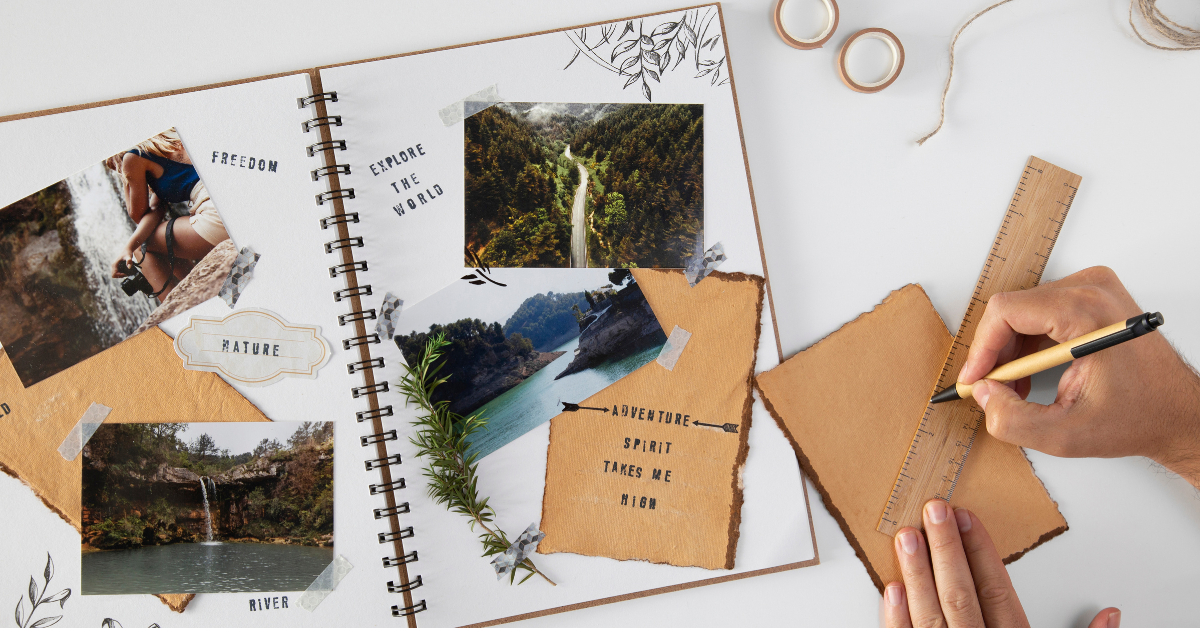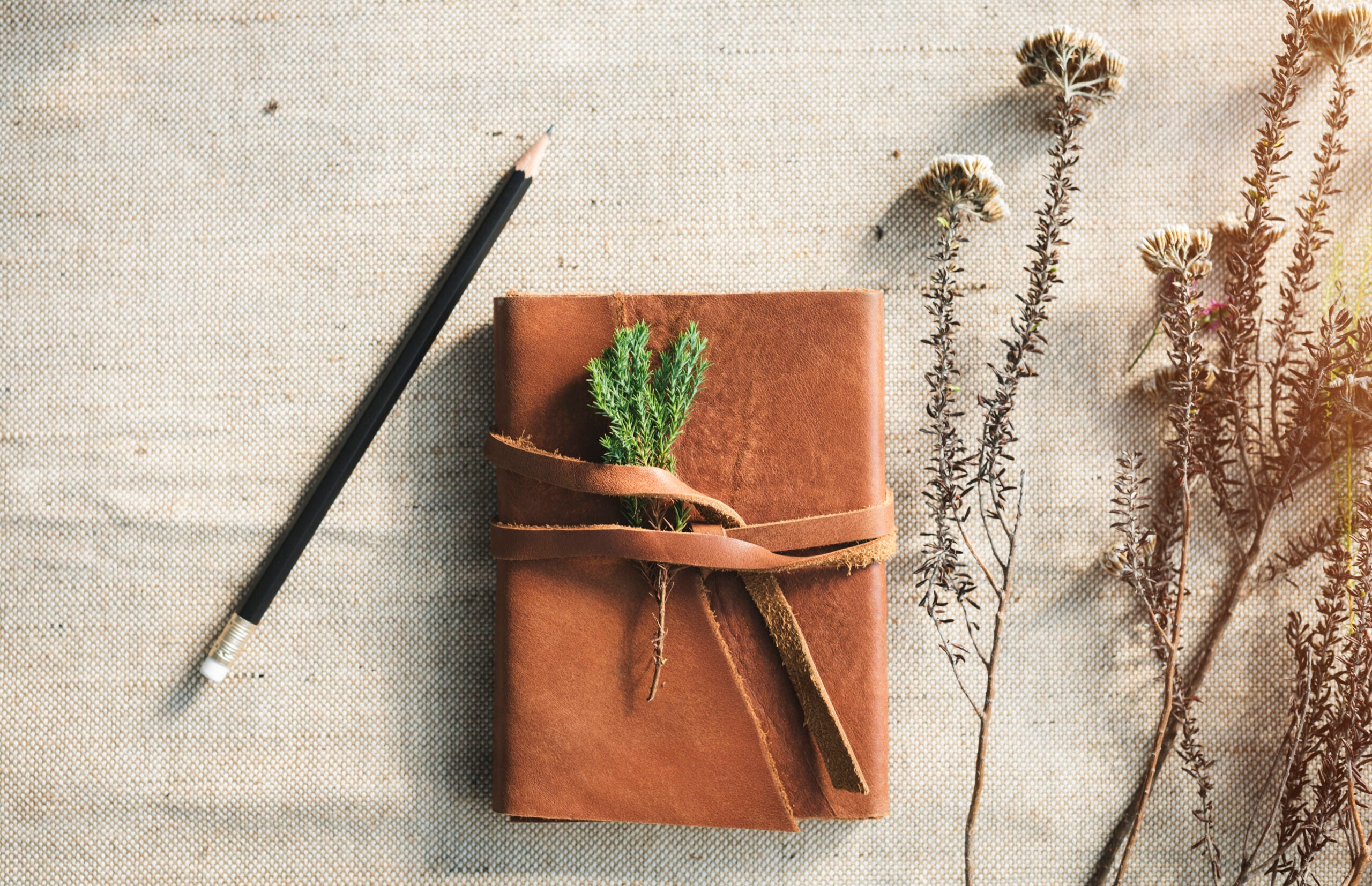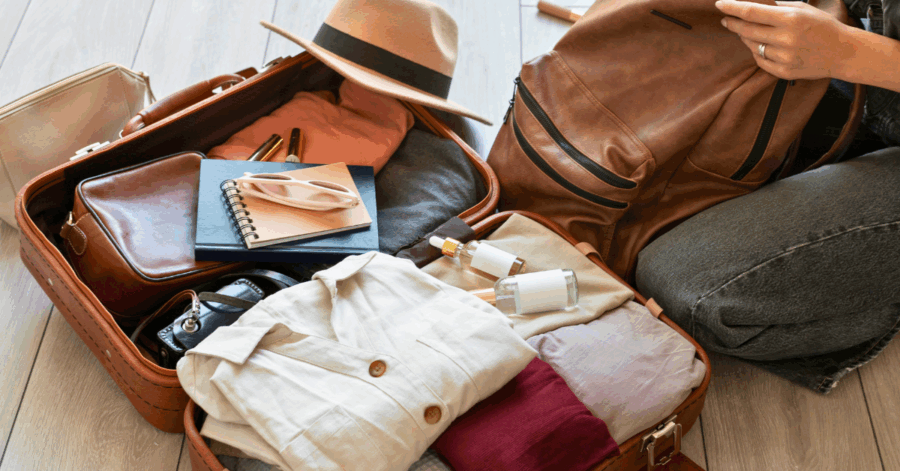
When I first arrived in Paris, I felt a mix of excitement and apprehension. Every street was new, I was starting classes with unfamiliar faces, and every conversation in French was a challenge. I also found that I had a lot of free time between classes and exploring the city.
One morning, I sat down at a small café near my apartment with a cappuccino and a big, empty leather bound notebook I had been given as a gift. I started jotting down everything I had done that day — where I’d walked, what I’d eaten, phrases I’d overheard on the metro.
At first, it was just a way to keep track of what I was doing. But it quickly turned into something I genuinely looked forward to. I loved the ritual of it: going to a café or a park, flipping to a fresh page, taping in little scraps I’d saved —a train ticket, a museum stub, a receipt from a bookstore I loved.
I was a little homesick in those early days and weeks, and journaling gave me something to focus on. It reminded me of how much fun I was having with new stuff.
What really pushed me to get more into it was when a friend showed me her own travel journal. It was chaotic in the best way — overstuffed, barely able to close, filled with sketches, notes, and poetry she had written on a train across Italy.
I wanted mine to look like that, and now it does: worn out, bursting at the seams, pages sticking out everywhere. I’m really proud of it, and it’s my favorite souvenir from my semester abroad.
Aside from looking really cool on your bookshelf, a journal is a great way to hold on to the little things you may otherwise forget: the funny guy you met on the metro, the restaurant with the delicious dessert, the museum you stumbled into by accident.
It’s also just a great way to fill free time — something you’ll probably have more of than you expect when you’re settling into a new place. Journaling helps you slow down and savor each and every moment.



There are plenty of ways to get the most out of your travel journaling experience:
- Don’t aim for perfection. You’re the only one reading it, so who cares if it’s messy or inconsistent? Just get stuff down.
- Go beyond writing! Some days, I didn’t feel like writing anything, so I just taped in whatever I’d collected — tickets, receipts, brochures. I even tried sketching once or twice.
- Keep it short if you want. If you’re tired or busy, bullet points work great.
- Try prompts when you’re stuck:
- Something new I tried today…
- Something I want to remember…
- Make it a routine. Just five minutes in the morning or before bed is enough to turn journaling into a habit.
- Don’t lose it! I left my journal at home whenever I went on trips because I didn’t want to risk losing it. Instead, I jotted things down in my phone and saved scraps, then filled in the details when I got back.

Every now and then, I flip through my journal and find little details I’d forgotten entirely — like the time I accidentally ordered intestine for dinner.
You don’t have to be a writer, artist, or scrapbooker to start. Just be open to trying something new! And trust me, you’ll be glad you did. Filling up a whole journal feels like such an accomplishment. Studying abroad is an incredible experience, and it deserves to be remembered.
Ava Terrell is an Education Abroad Peer Mentor providing support to students interested in studying abroad. Learn about this position and its services on the Peer Mentors Program webpage.





